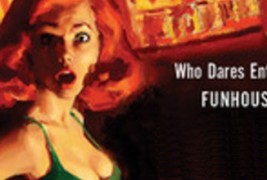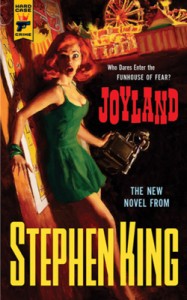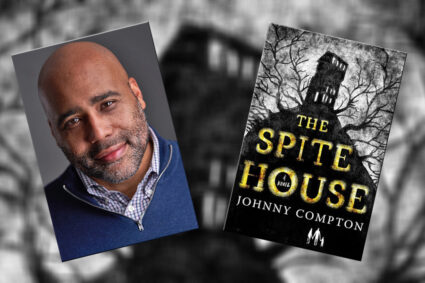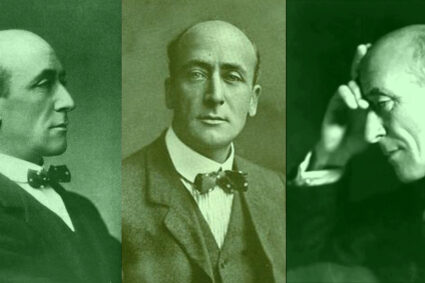
Joyland by Stephen King is available through Titan Books’ hard-boiled pulp crime imprint, Hard Case Crime. King’s latest tale is executed in the mold of classics from a bygone era and as such it’s only available via paperback, for now at least. So for you anti-e-book purists out there, this one’s for you.
Joyland is the story of Devin Jones, a 21-year old University of New Hampshire student who in 1973 takes a train down the east coast to work a summer job in Heaven’s Bay, North Carolina at the titular facility, Joyland, which is part carnival, part poor man’s Disneyworld. Devin’s atypical summer adventure is inspired by Wendy Keegan, his first love and fellow UNH student who signals the beginning of the end of their relationship by suggesting they spend some time apart. Not long after Devin arrives in North Carolina and learns to run the rides and talk-the-talk (speaking fluent carny vernacular) Wendy makes their time apart a permanent condition so Devin decides to forgo returning north for the fall semester in favor of staying in Heaven’s Bay and working like a dog (literally) at Joyland.
Devin quickly ascends above the level of the typical summer help, garnering the respect and admiration of his fellow temps as well as the carnival circuit vets who are described as “carny-from-carny”— folks who are forged from generations of working and living within this odd culture. He befriends Erin Cook and Tom Kennedy, another set of college lovebirds working for the summer, and he fits in well with his carny-from-carny mentors Lane Hardy and Fred Dean. What Devin finds he’s best at is “wearing the fur”—the giant Howie the Hound Dog costume in which death by dehydration is never out of the realm of possibility and he spends his nights in a rented room at Mrs. Shoplaw’s boarding house on the beach where long distance phone calls are paid for on the honor system and getting destroyed in games of Scrabble is a regular occurrence.
What starts out as an entertaining and well-executed coming of age story quickly becomes much more sinister as it reminds us that, yes, this is a Stephen King book. Joyland’s resident fortune teller is a woman by the name of Rozzie Gold, or Madame Fortuna when she’s on the clock, and Rozzie can, to an extent, actually tell fortunes…Stephen King, remember? She tells Devin about the park’s haunted funhouse known as Horror House which apparently sports a real ghost—the spirit of Linda Gray, a young woman who rode into Horror House with a mysterious man and never made it out alive. Linda Gray’s murderer was never caught and in the handful of years since it happened, both the grisly killing and subsequent haunting have become urban legend. When Devin, Tom, and Erin finally experience the funhouse for themselves on a day-off trip through the park Tom sees this apparition and he’s disturbed by it to say the least.
When the summer dwindles away and Tom and Erin return to college, Devin begins obsessing over this supposed ghost, real or not, and the tragic murder that at least gave rise to the idea. He calls Erin who uses her university library to research the circumstances of the case and when Erin and Tom visit Heaven’s Bay five weeks later, the information she provides Devin points to a potential serial murderer prowling the carnival circuit.
In the meantime, during one of Devin’s many walks home along the beach past a large green Victorian house, he finally meets the residents of the mysterious dwelling, Annie Ross—a troubled 31-year old single mother, her 10-year old son Mike who’s mostly wheelchair-bound and dying of Duchene’s Muscular Dystrophy, and their dog Milo. Annie’s the estranged daughter of televangelist and regional star, Buddy Ross, who’s also the owner of the opulent abode and if those circumstances aren’t strange enough, it turns out Mike Ross also has a bit of a real-deal psychic gift.
Annie is passionately protective of Mike and relatively dispassionate about everything else and as such she proves to be a tough nut to crack. However, Devin and Mike hit it off right away and Mike, who’s a sharp kid to begin with, is way ahead of everyone around him largely because of his psychic ability. Wise beyond his years, Mike understands his fate as well as the reasons why his mother is the way she is. Eventually Annie warms up to Devin and she reluctantly agrees to allow Mike a day trip to Joyland, an endeavor that’s not without some risk for the sick boy. That autumn the three of them are granted passage into the amusement park that Mike has only admired from afar and they’re given free reign while Lane Hardy and Fred Dean pull out all the stops to make it a day to remember.
It’s that day spent at the park that inevitably connects the dots in Devin’s head about poor Linda Gray and the perpetrator that took her life in Horror House. This sets off a frantic final act that’s as tense and full of twists and turns as any of the great pulp crime fiction that’s come before, but with that distinct Stephen King flare for the supernatural.
King is arguably the most successful commercial writer in American history and part of that is due to his longevity and his prolific output. As a result there exists a huge canon to examine and in it resides several outstanding stories. These represent the good Stephen King. But along the way there are a few disasters too—the bad Stephen King, if you will. These stories run in place, eventually forgetting to be stories at all as they devolve into abstractions wherein nothing happens at all. Honestly, King’s 1994 novel Insomnia is, for this reviewer’s money, the most ironically named book ever written. In fact the very thing it accomplished least was keeping me awake. But for every Insomnia there are many more books along the lines of It (my favorite King book) and 11/22/63 that are brilliantly constructed narratives of compelling, moving, and at times terrifying prose—the good Stephen King.
Joyland is an example of King at his best as he paints vivid and realistic portraits of small town America and these idyllic places obscure a dark underbelly of supernatural absurdities and nefarious malcontents. And what makes those elements work so well is that King’s characters seem as if they’re living, breathing examples of Americana—they’re people we’ve all known sometime down the line and they’re mixed up inside these outrageous scenarios that are simultaneously uncomfortable and captivating. When these scenarios occur to familiar people and in places reminiscent of where many of us grew up, it’s certainly not difficult to go a long for the ride.
King dedicates Joyland to the great crime novelist Donald Westlake and in retrospect his dedication couldn’t be more apropos. Aided by the structural formalities dictated by what Titan’s Hard Case Crime imprint has set out to accomplish and King’s obvious affection for this genre, Joyland ends up being a fast-paced quick read (283 pages) and an ultimately gratifying murder mystery that combines the very best elements of both King and Westlake.
2 thoughts on “Stephen King’s Joyland Book Review”
Comments are closed.
















Thank you for this review. I wanted to check this book out and I think I’m going to based on this critique. Good work.
Thanks for reading, Rob.